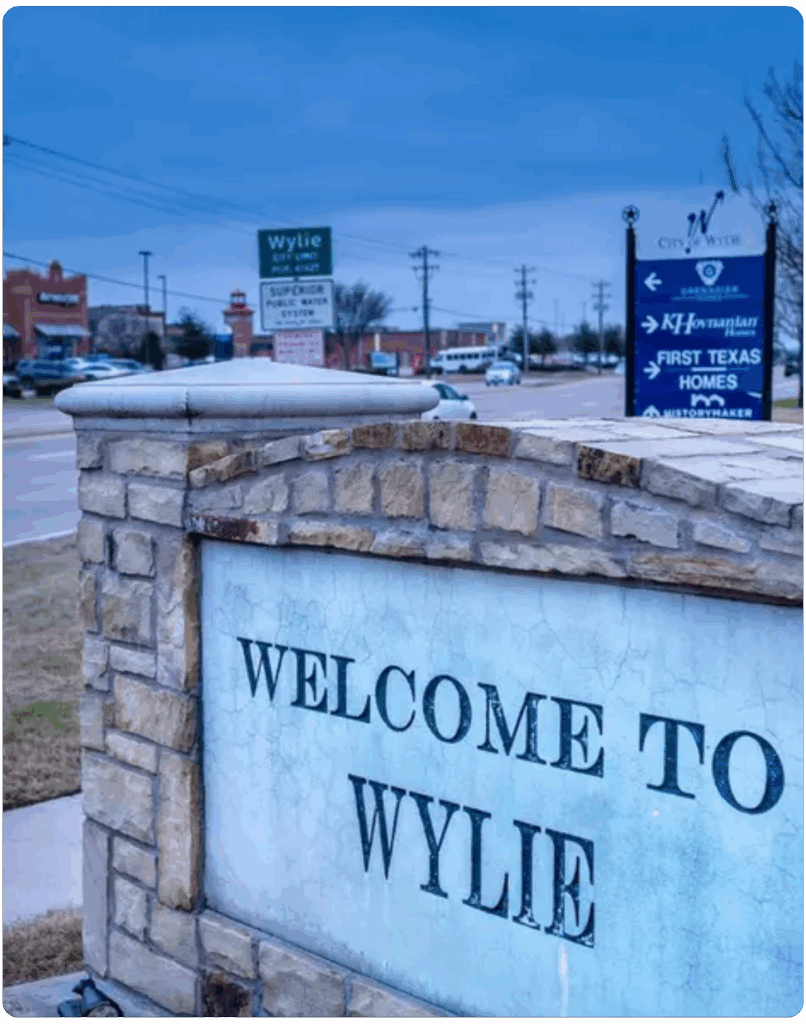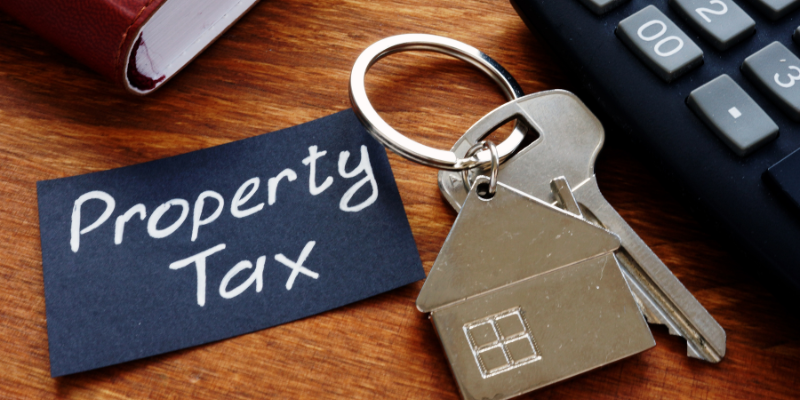
Wylie, TX Property Tax Rate: Understanding the Property Tax in Wylie
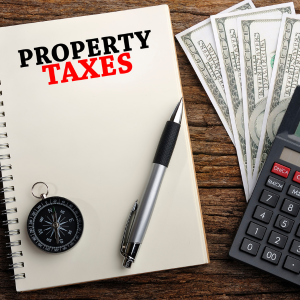
Navigating property taxes is an important part of homeownership, and current residents and prospective buyers should be aware of the Wylie, TX, property tax rate. This comprehensive guide delves into the complexities of Wylie property tax, covering how rates are determined, what they fund, and how to manage your tax expenses. Homeowners and investors can make better financial decisions by learning about local tax policies and practices. Learn important information about Wylie’s property tax rate, which will improve your knowledge and confidence in managing tax obligations effectively.
Key Highlights
- Property tax rates in Wylie impact individual finances and community development, funding essential services and infrastructure.
- Use of a tax calculator ensures accurate budgeting by accounting for local variables affecting property tax rates.
- Understanding and appealing tax evaluations can reduce financial burdens and promote fairer tax policies in Wylie.
- Comprehending tax dynamics assists homeowners in strategic planning, avoiding surprises from sudden tax rate changes.
- Comparing Wylie’s tax rates with neighboring areas aids financial planning and highlights community benefits funded by taxes.
Introduction to Wylie, TX Property Tax System
Understanding the property tax system in Wylie, Texas, is crucial for homeowners to effectively manage their expenses. As part of Collin County, the city has its own tax rates that homeowners should be aware of. In this investigation, we’ll look at why understanding property taxes is critical for homeowners and how these taxes affect community development in the city. Navigating these issues will better prepare residents to make informed decisions about their properties and understand the role of tax rates in promoting a prosperous urban environment.
| Aspect of Property Tax | Impact on Homeowners | Community Development Impact | Role in City Growth |
|---|---|---|---|
| Tax Rates | Affects annual expenses | Funds local schools and infrastructure | Encourages balanced urban expansion |
| Assessment Process | Determines property value for taxation | Ensures equitable taxation | Promotes accurate market reflection |
| Exemptions and Deductions | Reduces taxable value for eligible owners | Supports special groups, e.g. veterans and seniors | Facilitates social inclusiveness |
| Payment Deadlines | Requires timely financial planning | Stabilizes revenue for timely projects | Supports special groups, e.g., veterans and seniors |
This table illustrates how understanding property taxes in Wylie, Texas, is integral for both individual financial planning and community development.
Why Understanding Property Tax is Crucial for Homeowners
Understanding the nuances of property tax is critical for Wylie, Texas, homeowners because it has a direct impact on financial planning and long-term investing strategies. The Collin County Appraisal District determines the assessed value of a property, and the city’s property tax is calculated accordingly. This assessment reflects the property’s market value, which influences how much tax a homeowner must pay. A thorough understanding of this process enables residents to anticipate potential tax increases, budget for home improvements that may impact tax obligations, and avoid unexpected financial strain. For example, a sudden increase in assessed value or a change in the city’s tax rate could significantly raise a homeowner’s tax bill. Staying up to date on local government discussions and potential rate adjustments allows property owners to plan ahead, make strategic decisions about property transactions, and, if necessary, seek professional help to challenge inflated assessments.
Furthermore, understanding property taxes is essential when buying or selling real estate, as they directly influence profitability and long-term investment returns. Since Texas does not impose a state income tax, property taxes serve as a key funding source for vital public services such as schools, parks, and public safety, elements that enhance community life and maintain neighborhood value. Homeowners in Wylie who manage their property taxes effectively not only safeguard their personal finances but also contribute to the city’s overall stability and growth. By staying informed and proactive, residents can support fair tax practices, strengthen local infrastructure, and help maintain or even boost property values. For those planning to sell, working with cash home buyers in Wylie and surrounding Texas cities can simplify the process and ensure a smoother transaction while navigating local tax considerations.
The Local Impact of Tax Rates on Community Development
Wylie’s property tax rates affect community development beyond individual finances. These taxes fund vital public services and infrastructure that improve residents’ lives. Annual property taxes are used to improve local amenities, public safety, and educational facilities for Wylie’s growing population of families and future homeowners. Proper use of these funds ensures new residents have well-developed facilities and long-term residents have ongoing improvements. Property tax revenue also supports city planning and zoning, ensuring that Wylie has enough resources to maintain roads, public buildings, and other vital community services as it grows. Setting appropriate tax rates helps the city fund long-term projects that boost economic growth, attract new businesses, and create jobs.
Transparent property tax fund management builds trust between residents and local government, boosting civic engagement and collaboration. When tax contributions improve schools, parks, and infrastructure, citizens trust city leadership and participate in local decision-making. Public spending that meets residents’ needs promotes economic inclusivity, fairer tax policies, and lower financial burdens. Property taxes are a personal obligation and a cornerstone of Wylie’s progress. Understanding how these tax rates are used empowers homeowners to discuss city policies and advocate for sustainable urban growth, helping Wylie remain a thriving and well-balanced Texas community.
Breaking Down the Wylie Property Tax Rate
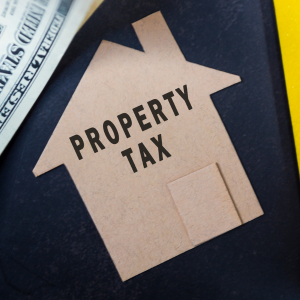
In Wylie, Texas, property tax rates play a key role in the overall cost of homeownership, shaping both financial planning and community development. Gaining a clear understanding of how these rates are determined and how they compare to nearby cities allows residents to make informed financial decisions while appreciating the broader picture of Wylie’s growth. This overview explores the main factors that affect local tax rates and compares Wylie’s rates with those of neighboring areas to show their influence on property values and long-term fiscal strategies. For personalized guidance and support in navigating these financial aspects, Sell My House Fast Houston can help you make well-informed decisions about your property.
How is the Property Tax Rate Determined?
Wylie’s property tax rate is determined by carefully balancing assessed property values, local government budgetary needs, and state regulations. Wylie’s tax rate, like that of many other Texas cities, is primarily determined by the Collin County Appraisal District’s assessment of property values. The appraisal district assesses properties based on market data, recent sales, and property conditions to determine an appraised value that is accurate to current market trends. This valuation ensures that homeowners’ tax responsibilities are fairly distributed. The total taxable value of all properties, as well as the city’s financial needs, must be considered when determining the tax rate. Local governments, including the city and school district, propose annual budgets to fund critical services like public safety, education, and infrastructure. The total proposed budget is then divided by the city’s assessed property value to determine the tax rate for the year. This rate is adjusted annually to meet fiscal objectives while taking into account factors such as inflation and the community’s overall economic conditions.
State oversight ensures that property tax rates are fair and manageable for residents. Texas legislation, including the “rollback” tax rate system, limits the amount that local governments can raise tax rates without voter approval each year, protecting homeowners from unexpected financial strain. The balance between adequate public funding and taxpayer protection is critical to community stability. For Wylie homeowners, staying informed about factors influencing property assessments is critical because they have a direct impact on tax liabilities. Active participation in public hearings or appraisal reviews enables residents to raise valuation concerns while also promoting transparency. Finally, understanding how property tax rates are calculated allows homeowners to anticipate changes, plan their finances wisely, and advocate for policies that benefit both personal and community interests.
Comparing Wylie Property Tax Rate with Neighboring Areas
The Wylie property tax rate, while influenced by local factors, is especially significant when compared to neighboring Collin County cities. When analyzing tax rates, it is critical to look beyond the numbers to the services that these taxes support. Plano, Frisco, and McKinney are frequently used as benchmarks due to their close proximity and similar growth trends. These comparisons help to highlight both the financial impact on taxpayers and the benefits that taxes provide to the community. Wylie, for example, keeps tax rates competitive while still providing excellent community services. Although its rate appears to be lower than that of some nearby cities, this does not indicate a decrease in quality or standards. Instead, Wylie’s effective fiscal management ensures that tax revenues are allocated strategically to support public infrastructure, educational facilities, and community amenities. This prudent approach not only promotes a high standard of living but also fosters continued residential and business growth in the city.
Examining property tax rates in Collin County reveals broader socioeconomic factors that influence local government. Cities like Plano frequently have higher property values and more developed commercial districts, resulting in increased tax revenue to fund expansive urban amenities. McKinney, on the other hand, strikes a balance between rapid residential development and the need to preserve public services, resulting in a distinct tax structure. Understanding these dynamics informs Wylie residents about potential development paths and regional growth trends. Comparative analysis encourages public discussion about the city’s long-term goals, such as economic development, sustainability, and quality of life. By staying informed and participating in policy discussions, residents can help guide Wylie’s fiscal decisions toward responsible growth. Finally, understanding how Wylie’s tax rate fits into the regional landscape allows homeowners and investors to make more informed decisions, bolstering the city’s reputation as a well-managed and appealing community in one of Texas’s fastest-growing areas.
Utilizing a Tax Calculator for Accurate Estimations
Understanding property taxes in Wylie requires more than simply knowing the tax rate. A tax calculator is a valuable resource for homeowners. It stands out for its ability to provide accurate estimates based on the city’s tax rate and property values. Taxpayers can enter various parameters to forecast potential expenses, assisting with budgeting and financial planning. These calculators take into account Collin County-specific factors, providing residents with an understanding of their tax obligations. The inclusion of a tax calculator ensures that even fluctuations in assessed values or changes in the city’s budget do not catch homeowners off guard.
Benefits of Using a Tax Calculator
Using a tax calculator provides Wylie homeowners with several key benefits, particularly when navigating the city’s changing property tax landscape. One of the primary advantages is accuracy, which is critical given that property tax amounts in Collin County fluctuate based on assessed values and legislative updates. Residents can get a reliable estimate of their annual tax obligations by entering property values, current tax rates, and any applicable exemptions. This level of precision facilitates effective financial planning and assists homeowners in anticipating changes that may occur as a result of adjustments to city budgets or economic conditions. Furthermore, tax calculators assist residents in avoiding penalties associated with underpayment by ensuring payments are in line with municipal schedules, preventing the accumulation of unexpected back taxes and financial strain.
Tax calculators also have the advantage of being simple and easy to use. These tools are typically intended to be user-friendly, transforming complex tax formulas into simple results. Homeowners can change inputs to investigate various scenarios, such as the impact of potential tax increases or exemptions, based on changes in Wylie’s fiscal priorities. This flexibility enables users to better understand how potential home renovations or property value changes will affect their overall tax burden. With this knowledge, homeowners can make more informed decisions about property improvements, budgeting, and timing of future transactions. They gain greater control over their financial situation while remaining compliant with local tax obligations.
Beyond individual benefits, tax calculators play an important role in promoting transparency and civic engagement throughout the Wylie community. These tools enable residents to better understand how assessed values and local policies influence their taxes, making it easier to engage in meaningful discussions about fiscal planning and community development. They also clarify how tax dollars are allocated to essential services such as schools, parks, and public safety. This level of transparency fosters trust between residents and local leaders, helping individuals align their financial goals with broader community priorities. In this context, the tax calculator becomes more than a financial resource; it serves as a bridge between municipal planning and public participation. To learn more about effective ways to navigate property-related decisions, explore how Sell My House Fast Houston works to simplify the process while supporting homeowners and community growth.
Essential Tips for Managing Your Property Tax in Wylie
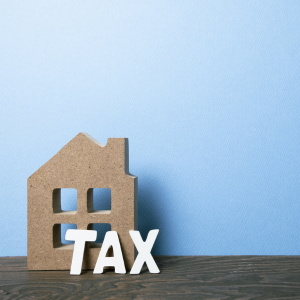
Paying your property taxes in Wylie, Texas, can have a big impact on your money and your peace of mind. Strategic insights can help homeowners understand the complicated tax system, which can help them lower their tax bills and get the most out of what they have. We’ll talk about different ways to lower your property tax and how to fight an assessed value. This will be useful for Wylie homeowners who are new and those who have lived there for a while.
Strategies to Lower Your Property Tax Bill
Every homeowner in Wylie, Texas, should explore strategies to lower their property tax bill without compromising their property’s value. Understanding the assessed valuation process is a critical first step. The valuation, administered by the Collin County Appraisal District, determines the market value of properties, which forms the basis of the tax bill. One effective strategy is to scrutinize your annual tax assessment notice closely. Often, discrepancies arise in classified home features or listed improvements, leading to higher assessed values than warranted. Homeowners can file for corrections if errors are found, potentially reducing the property’s valuation and, in turn, the tax bill.
Owning a home in Wylie means staying informed about Texas’s tax exemption policies. Possible exemptions include homestead exemptions, which lower the taxable value of primary residences, senior citizen exemptions, and exemptions for veterans. These can significantly lessen your annual financial obligations. It’s essential to apply for these exemptions through Collin County to ensure they are factored into your tax computation.
Additionally, regular maintenance and modest enhancements to your property can deter a steep rise in assessed valuations. Major renovations can increase property value, impacting your tax bill. Thus, weighing the benefits of improvements against potential tax increases is wise. Keeping up with local meetings discussing tax rate proposals in Wylie also provides a strategic advantage, as you can voice concerns or suggestions before tax plans are finalized. Engaging in these public forums not only aids in understanding the dynamics of local tax adjustments but also gives you a chance to advocate for fair rates and transparency.
Finally, using technology like tax calculators provides a fast and accurate way to estimate potential tax liabilities across different scenarios, helping you plan more effectively. By simulating changes in property values or tax rates, homeowners can make proactive financial adjustments to stay ahead. With the right strategy, you can manage your property tax responsibilities efficiently and align your financial plans with your long-term homeownership goals. If you’re thinking about selling, working with investor home buyers in Arlington and other cities in Texas can also streamline the process and help you achieve your goals more smoothly.
Understanding the Appeal Process for Disputed Tax Evaluations
The appeal process for disputed tax evaluations in Wylie is a valuable resource for homeowners who believe their property has been over-assessed. To understand this process, start by reviewing the Collin County Appraisal District’s notice of appraised value, which is sent out each spring. This document describes the assessed value on which your property tax is calculated. If you find discrepancies or believe the valuation does not accurately reflect the value of your property, the next step is to file an appeal.
To begin the appeal process, file a formal protest with the County Appraisal District. Homeowners should gather all necessary documentation to support their case. Consider factors such as recent sales data, repair costs, and photos to determine market value. Texas law establishes a timeline for appeals, which is typically within 30 days of receiving your notice, so acting quickly is critical. Informal reviews with an appraiser may resolve disputes without a formal hearing.
If informal negotiations do not yield a satisfactory result, a formal hearing before the Appraisal Review Board (ARB) is the next step. During this hearing, you must present organized evidence and articulate your argument clearly. Legal representation and professional appraisers may be beneficial to homeowners, but they are not required. The ARB, which is made up of local citizens, seeks to ensure fair evaluations, assuring those who appeal that the board considers both sides.
If dissatisfied with the ARB decision, further appeals can be filed with the State Office of Administrative Hearings or through litigation in court. However, these steps may incur additional costs and time commitments. Homeowners should weigh the long-term financial benefits of a lower tax rate against the potential costs and efforts associated with prolonged litigation. A thorough understanding of the appeal mechanisms and procedures is essential for any Wylie resident seeking fair property assessments.
Mastering the complexities of disputing tax assessments not only lowers your financial burden but also improves your understanding of the local property tax system. Participating in this process helps maintain equitable tax policies, resulting in a fairer system for all Wylie, Texas, residents.
FAQs:
How are property tax rates determined in Wylie, TX?
Property tax rates in Wylie, TX, are determined by the assessed valuation of properties by the Collin County appraisal district. The city’s budget requirements and the total taxable property value influence the final rate, which is set annually. State regulations like the “rollback” tax rate system help keep increases in check.
What services are funded by property taxes in Wylie?
Property taxes in Wylie fund essential services such as public safety, education, infrastructure maintenance, parks, and public safety functions. These taxes significantly contribute to community development and quality of life improvements.
How can Wylie homeowners reduce their property tax bills?
Homeowners in Wylie can reduce their property tax bills by checking their annual tax assessment notices for errors, applying for exemptions like homestead exemptions, and appealing over-assessed property valuations. Utilizing tax calculators for accurate budgeting and staying informed about local tax policy changes also helps.
What is the role of a tax calculator in managing property taxes?
A tax calculator is a useful tool for homeowners to estimate their property taxes accurately. By inputting property values and tax rates, residents can predict expenses and plan accordingly, avoiding surprises due to changes in assessed values or city budgets.
How does appealing a property tax evaluation in Wylie work?
The appeal process begins with a formal protest to the Collin County Appraisal District. Homeowners should prepare supporting documentation, such as sales data of similar properties or evidence of discrepancies. Following informal reviews, a formal hearing with the Appraisal Review Board can occur, with further appeal options available if necessary.
Helpful Wylie Blog Articles
- Wylie, TX Property Tax Rate
- Explore the Neighborhood Map and Subdivisions of Wylie, TX
- Fun Facts About Wylie, TX
- Best Wylie, TX Property Managers
- Best Things to Do in Wylie, TX with Kids
- Discover Living in Wylie, TX
- The Best and Worst Neighborhoods in Wylie, TX
- Wylie, Texas Cost of Living
- Wylie, Texas Closing Costs Calculator
- Wylie, Texas Capital Gains Tax Calculator
